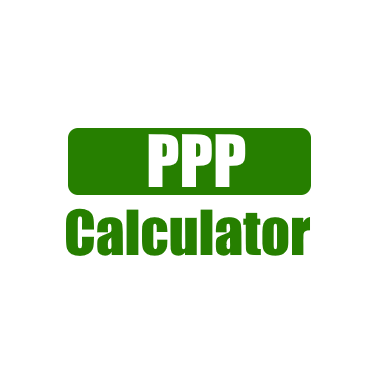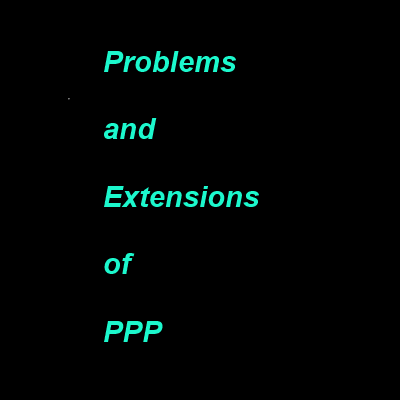
International Trade And Defination
Worldwide exchange is the buy and offer of labor and products by organizations in various nations. Shopper merchandise, unrefined substances, food, and hardware all are traded in the worldwide commercial center.International Trade And Defination
Worldwide exchange permits nations to grow their business sectors and access labor and products that in any case might not have been accessible locally. Because of worldwide exchange, the market is more cutthroat.
This can at last bring about more aggressive estimating and less expensive items. A few nations participate in public treatment of imported merchandise, regarding them as identical to those equivalent items created locally.
Key Takeaways for International Trade And Defination
Worldwide exchange permits buyers and nations to be presented to labor and products that are not accessible in their own nations, or that are more costly locally.
The significance of worldwide exchange was perceived almost immediately by political financial analysts like Adam Smith and David Ricardo.
Pundits contend that global exchange can be destructive to more modest countries,
Understanding International Trade for International Trade And Defination
On the off chance that you can stroll into a grocery store and track down Costa Rican bananas, Brazilian espresso, and a jug of South African wine, you’re encountering the effects of global exchange.Worldwide exchange was vital to the ascent of the worldwide economy. In the worldwide economy, organic market — and accordingly.
Political change in Asia, for example, could extend the cost of work. This could extend the gathering costs for an American sneaker association that is arranged in Malaysia, which would then form the expense charged for several shoes that an American customer could purchase at their close by retail outlet.

Imports and Exports for International Trade And Defination
An item that is offered to the worldwide market is called a commodity, and an item that is purchased from the worldwide market is an import. Imports and commodities are represented in the ongoing record part of a nation’s equilibrium of installments.
Various nations are enriched with various resources and regular assets, like land, work, capital, and innovation. Worldwide exchange permits well off nations to effectively utilize their assets more.
This likewise permits a few nations to deliver a similar decent more productively; as such, more rapidly and at a lower cost. Accordingly, they might sell it more efficiently than different nations may. In the event that a nation can’t effectively create a thing, it can get it by exchanging with another country that can. This known as specialization.
Comparative Advantage
Britain and Portugal have generally been utilized — as far back as in Adam Smith’s “The Abundance of Countries” — to delineate how two nations can commonly benefit by practicing and exchanging as per their own relative benefits.
In such models, Portugal is said to have copious grape plantations and can make wine for a minimal price, while Britain can produce fabric all the more economically given its fields are loaded with sheep.
2
Findlay, Ronald.
“Near advantage.” The Universe of Financial matters. Palgrave Macmillan, London, 1991. pp. 99-107.
As per the hypothesis of near advantage, every nation would ultimately perceive these realities and quit endeavoring to make the item that was more expensive to create locally for taking part in exchange.
Indeed, over time, England would likely stop producing wine, and Portugal would stop manufacturing cloth. Both countries would realize that it was to their advantage to redirect their efforts at producing what they were relatively better at domestically and, instead, to trade with each other in order to acquire the other.
These two nations understood that they could create more by zeroing in on those items for which they enjoy a near benefit. In such a case, the Portuguese would start to deliver just wine, and the English, just fabric.
Every nation could then make a particular result of 20 units each year and exchange equivalent extents of the two items. Accordingly, every nation could get to the two items at lower costs. We can see then that for the two nations, the open door cost of creating the two items is more prominent than the expense of practicing.
Similar benefit can appear differently in relation to outright benefit. Outright benefit prompts unambiguous additions from specialization and exchange just in cases wherein every maker enjoys a flat out benefit in creating some benefit.
On the off chance that a maker coming up short on outright benefit, they trade send out nothing. Yet, we really do see that nations with no reasonable outright benefit truly do acquire from exchange since they enjoy a near benefit.
Origins of Comparative Advantaeg for International Trade And Defination
The hypothesis of relative benefit has ascribed to the English political business analyst David Ricardo. Relative benefit examined in Ricardo’s book “On the Standards of Political Economy and Tax collection,” distributed in 1817, in spite of the fact that it has recommended that Ricardo’s guide, James Plant, possible started the examination and slipped it into Ricardo’s book secretly.
Same benefit.
Relative benefit, as we have displayed above, broadly showed how Britain and Portugal both advantage by practicing and exchanging as indicated by their near benefits.
For this situation, Portugal had the option to make wine for a minimal price, while Britain had the option to produce material economically. Ricardo anticipated that every nation would ultimately perceive these realities and quit endeavoring to make an item that was more expensive to create.
5
A more contemporary illustration of near advantage is China’s similar benefit over the US as modest work. All through a large part of the twentieth hundred years, Chinese laborers delivered straightforward customer merchandise at a much lower opportunity cost.
6
The near advantage for the U.S. is in particular, capital-escalated work. American specialists produce refined products or venture open doors at lower opportunity costs.
Practicing and exchanging thusly benefit every country. Notwithstanding, it ought to noticed that Chinese makers are presently ready to create merchandise that length all levels of the worth chain, including superior grade, greater expense items.
The hypothesis of near advantage assists with making sense of why protectionism has been generally ineffective. In the event that a nation eliminates itself from a global economic deal, or on the other hand on the off chance that an administration forces duties, it might create a quick nearby advantage as new positions; notwithstanding, this is seldom a drawn out answer for an exchange issue.Ultimately, that nation will develop to be in a difficult situation comparative with its neighbors, nations that were at that point better ready to create these things at a lower opportunity cost.
For what reason doesn’t the world have open exchanging between nations?
When there streamlined commerce, for what reason do a few nations stay poor to the detriment of others? There are many reasons, yet the most powerful is something that financial specialists call lease chasing. Lease looking for happens when one gathering arranges and anterooms the public authority to safeguard its inclinations.
Say, for instance, the makers of American shoes comprehend and concur with the streamlined commerce contention yet additionally realize that less expensive unfamiliar shoes would adversely affect their limited advantages.
Regardless of whether workers would be generally useful by changing from making shoes to making PCs, no one in the shoe business needs to lose their employment or see benefits decline in the short run.
This want could lead the shoemakers to campaign for exceptional tax reductions for their items or additional obligations (or even through and through prohibitions) on unfamiliar footwear.
Requests to save American positions and safeguard a revered American specialty proliferate — despite the fact that, over the long haul, American workers would be somewhat less useful and American purchasers moderately less fortunate because of such protectionist strategies,
Other Possible Benefits of Trading Globally for International Trade And Defination
Worldwide exchange results expanded productivity as well as permits nations to partake in a worldwide economy, empowering the chance for unfamiliar direct venture (FDI). In principle, economies can subsequently develop all the more productively and become cutthroat monetary members all the more without any problem.
For the getting government, FDI is a method by which unfamiliar money and skill can enter the country. It raises business levels and, hypothetically, prompts development in the total national output (Gross domestic product). For the financial backer, FDI offers organization extension and development, and that implies higher incomes.
Free protectionism
Similarly as with all hypotheses, there are restricting perspectives. Global exchange has two differentiating sees in regards to the degree of control put on exchange between nations.
Free Trade
Streamlined commerce is the easier of the two hypotheses. This approach additionally some of the time alluded to as free enterprise financial matters. With a free enterprise approach, there are no limitations on exchange.
The principal thought is that market interest factors, working on a worldwide scale, will guarantee that creation happens productively. Thusly, nothing should finished to safeguard or advance exchange and development since market influences will do this naturally.
Protectionism
Protectionism holds that guideline of global exchange is critical to guarantee that markets capability appropriately. Supporters of this hypothesis accept that market shortcomings might hamper the advantages of global exchange, and they expect to appropriately direct the market.
Protectionism exists in a wide range of structures, yet the most well-known are duties, endowments, and quantities. These techniques endeavor to address any shortcoming in the worldwide market.
As worldwide exchange opens up the chance for specialization, and hence more effective utilization of assets, it can possibly boost a country’s ability to deliver and obtain merchandise.
Adversaries of worldwide deregulation have contended, nonetheless, that global exchange actually considers failures that leave emerging countries split the difference. What is sure is that the worldwide economy is in a condition of constant change. In this way, as it grows, so too should its members.



